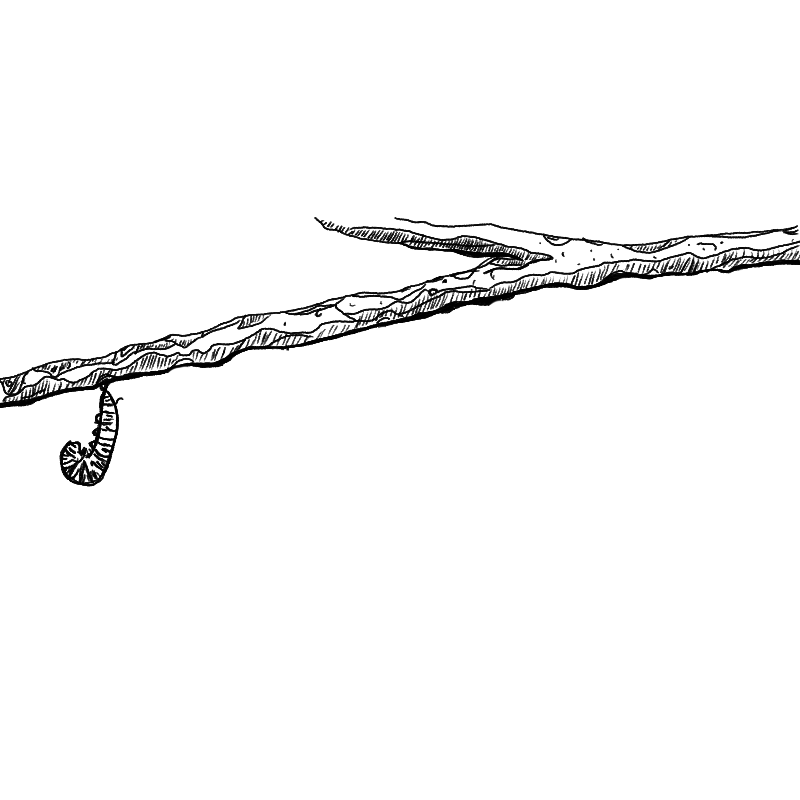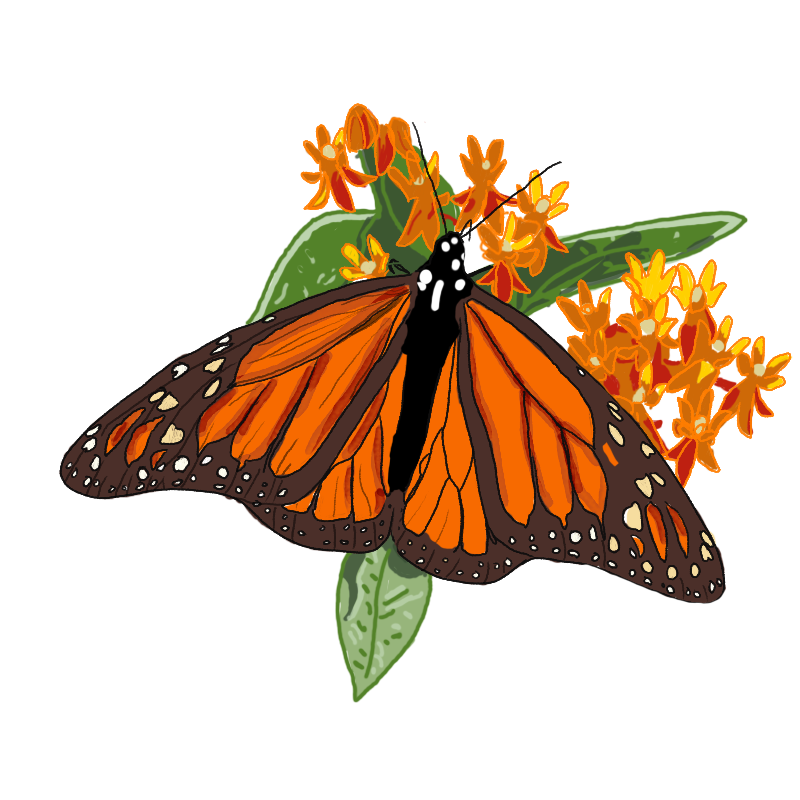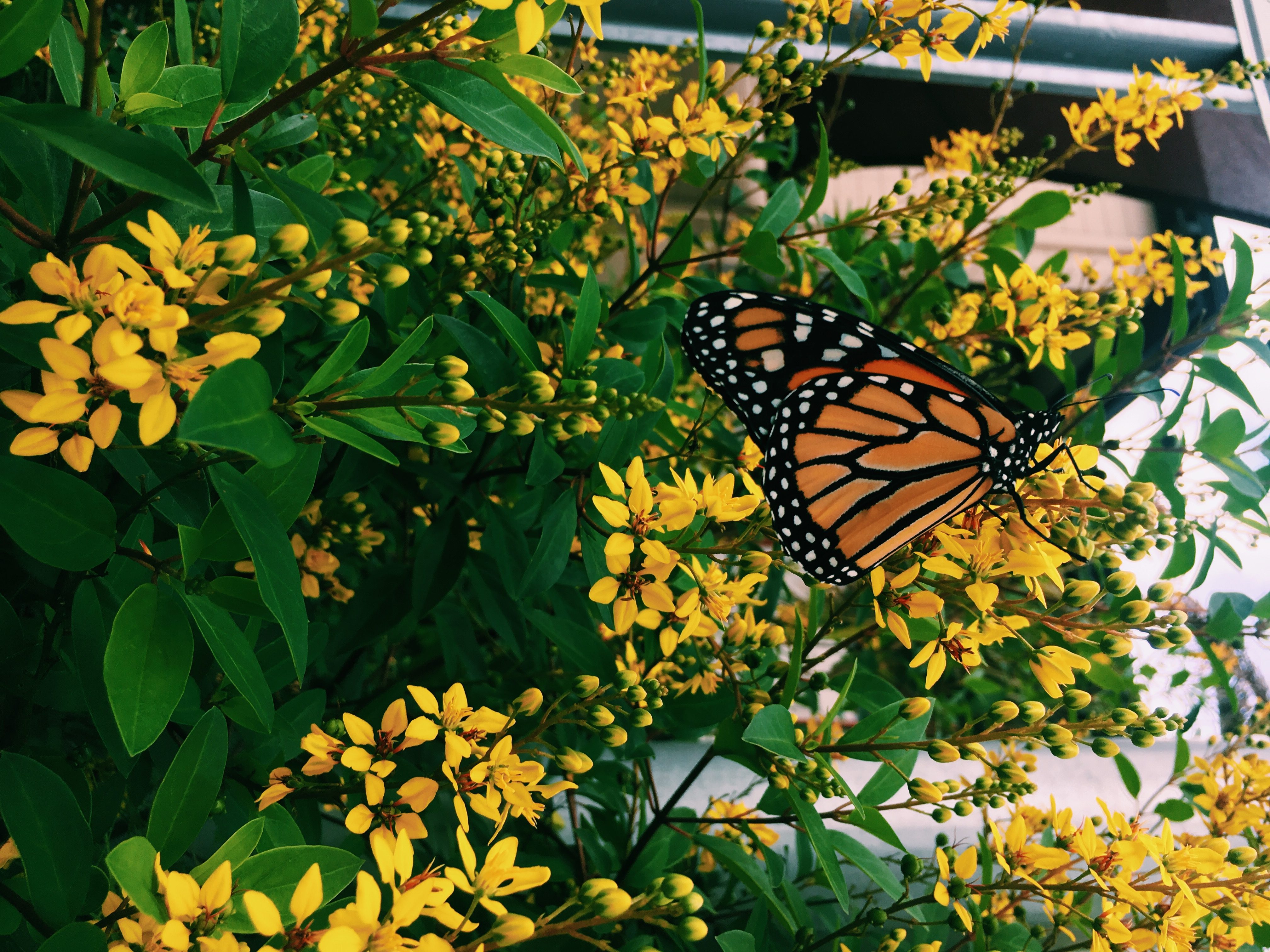 Did you know that the Guinness World record for the longest known migration of the Lepidopteran species (butterflies and moths) is held by the male monarch butterfly? Monarch butterflies travel almost 3,000 miles to spend the winter in California and Mexico, and then return north to lay their eggs. This annual migration protects the species health, making it necessary for monarchs to travel. Monarch butterflies are necessary for the pollination of hundreds of our fruits and vegetables, and they are also important for dietary staples like cheese, butter, sugar, and red meat!
Did you know that the Guinness World record for the longest known migration of the Lepidopteran species (butterflies and moths) is held by the male monarch butterfly? Monarch butterflies travel almost 3,000 miles to spend the winter in California and Mexico, and then return north to lay their eggs. This annual migration protects the species health, making it necessary for monarchs to travel. Monarch butterflies are necessary for the pollination of hundreds of our fruits and vegetables, and they are also important for dietary staples like cheese, butter, sugar, and red meat!
Milkweed is the sole plant that monarch larvae feed on, and the only plant that adult monarchs will lay their eggs. Metamorphosis for the monarch butterfly happens in four stages over a span of 30 days, starting with the egg, larva (or caterpillar), pupa (chrysalis), and finally, adult. The milkweed helps protect monarchs from predators because of their bright colors, but also because the milkweed contains toxins that are harmful to other insects and animals, but not the monarch. Florida is one of few southern states that hosts a population of nonmigratory monarchs, and this is speculated to be due to non-native or tropical species of milkweed that do not have the same blooming patterns of native species.
Metamorphosis for the monarch butterfly happens in four stages over a span of 30 days, starting with the egg, larva (or caterpillar), pupa (chrysalis), and finally, adult. The milkweed helps protect monarchs from predators because of their bright colors, but also because the milkweed contains toxins that are harmful to other insects and animals, but not the monarch. Florida is one of few southern states that hosts a population of nonmigratory monarchs, and this is speculated to be due to non-native or tropical species of milkweed that do not have the same blooming patterns of native species.

Unfortunately, over the past 20 years the monarch butterfly population has declined up to 90%. This is a devastating loss and can negatively impact our environment and economy from a loss of monarch butterflies hard-work pollinating! Due to the loss of habitat for native milkweeds, climate change, illegal logging in roosting centers for monarchs, and many other factors has caused the population decline.
There are many ways you can help! Get involved with The Monarch Initiative right here in Orlando by donating or volunteering, plant native milkweeds and other pollinator attracting plants in your own garden, and spread awareness.
Sources: The Monarch Initiative, Nature Serve and the Xerces Society for Invertebrate Conservation, The Nature Conservancy

